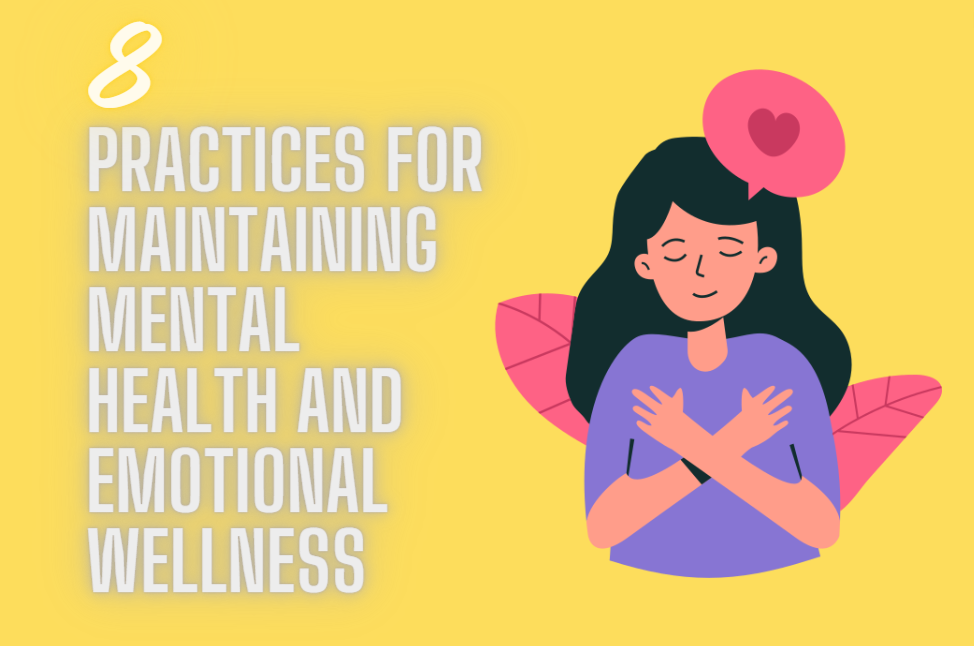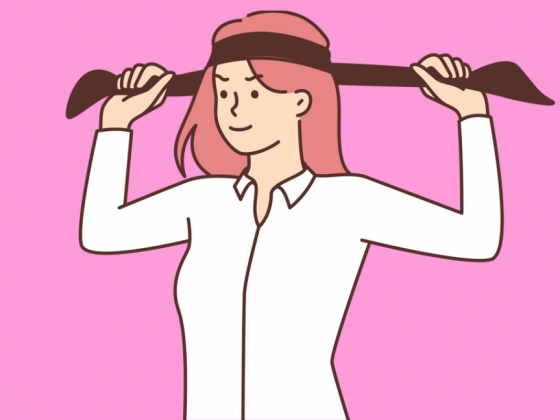Introduction
You’re juggling life’s demands, but have you checked in on your mental health lately? It’s time to put yourself first.
From mindful meditation to embracing a nutritious diet, these eight practices aren’t just good advice—they’re essential steps to ensuring your emotional well-being thrives.
Grab your sneakers, find your zen, and get ready to connect with others. Your journey toward a healthier, happier you starts here.
Let’s dive into the habits that’ll keep your mind as fit as your body.
Practice Mindful Meditation
Incorporating mindful meditation into your daily routine can significantly enhance your emotional well-being. By setting aside just a few minutes each day, you’ll start noticing a shift in your stress levels and overall mood. It’s about being present in the moment, focusing on your breath, and acknowledging your thoughts without judgment.
You don’t need any special equipment—just a quiet space where you won’t be interrupted. Sit comfortably, close your eyes, and breathe deeply. Let your thoughts come and go, and gently guide your attention back to your breath whenever you get distracted.
With consistent practice, you’ll cultivate a sense of inner peace that’ll help you handle life’s challenges with greater calmness and clarity. Start today, and watch your mental health transform.
Prioritize Quality Sleep
You’ve learned how meditation can anchor your mental state, but don’t underestimate the power of a good night’s rest.
Adhering to a consistent sleep hygiene routine can significantly boost your emotional equilibrium.
Establishing a relaxing bedtime ritual not only cues your body for rest but also contributes to overall wellness.
Sleep Hygiene Importance
Amidst the hustle of daily life, ensure you’re setting the stage for restorative sleep, as it’s pivotal for your mental health and emotional equilibrium. Good sleep hygiene means creating a bedroom environment and daily routines that promote consistent, uninterrupted slumber. Consider factors like room temperature, light exposure, and noise levels. Your bedroom should be a sanctuary designed for sleep.
Be mindful of your pre-sleep activities. The use of electronic devices before bedtime can interfere with your natural sleep cycle, so it’s wise to unplug at least an hour before you turn in. Establish a relaxing bedtime routine that may include reading or meditation to signal your body it’s time to wind down.
Bedtime Routine Benefits
Consistently prioritizing a structured bedtime routine can significantly enhance your sleep quality, directly benefiting your mental and emotional health.
By establishing a regular schedule for sleep, you’re setting your internal clock to expect rest at the same time each night, leading to more predictable and restful sleep patterns.
Engage in calming activities like reading or meditation to signal to your brain that it’s time to wind down.
Limit exposure to bright screens, as the blue light emitted can disrupt your natural sleep-wake cycle.
Make your sleeping environment comfortable and conducive to rest, keeping it cool, dark, and quiet.
Engage in Physical Activity
You’ve likely heard that exercise is good for your body, but it’s also critical for your mind. By engaging in regular physical activity, you’re not only chipping away at stress but also naturally lifting your mood.
Better yet, as your stress levels decrease and your spirits lift, you’ll often find that the quality of your sleep improves as well.
Exercise Reduces Stress
While you mightn’t always feel up for a workout, engaging in regular physical activity can significantly lower your stress levels. It’s not just about pushing yourself to the limit; even a brisk walk or a gentle yoga session can trigger the release of endorphins, your body’s natural mood lifters. These endorphins act as stress buffers, helping you to maintain a sense of calm and wellbeing.
Additionally, exercise improves your sleep quality, which is often disrupted by stress. With better sleep, you’re more equipped to handle life’s pressures.
Boosts Mood Naturally
Engaging in regular physical activity, you’ll find your mood naturally elevates as the body releases feel-good hormones like serotonin and dopamine. These biochemicals are your natural mood lifters, reducing feelings of anxiety and depression.
You don’t need to become a marathon runner or a gym fanatic either. Just a brisk walk, a dance session in your living room, or a quick swim can make a significant difference.
Remember, it’s about consistency, not intensity. Aim for at least 30 minutes of moderate exercise most days of the week. You’ll likely notice you’re feeling more upbeat and energetic.
Plus, as you build strength and endurance, you’ll gain a sense of accomplishment. So, lace up those sneakers, and let’s get moving for a happier, healthier you!
Enhances Sleep Quality
Besides boosting your mood, regular physical activity can significantly improve your sleep quality, helping you to fall asleep faster and enjoy a deeper rest. When you engage in exercises like walking, swimming, or yoga, your body heats up and cools down afterward, promoting drowsiness.
Moreover, physical activity helps regulate your body’s internal clock, or circadian rhythm, which can lead to more consistent sleep patterns.
Additionally, working out can alleviate symptoms of stress and anxiety, which are often culprits behind sleep disturbances. By incorporating even a moderate amount of exercise into your daily routine, you’ll likely find that you’re not just snoozing more quickly but also waking up feeling more refreshed.
Foster Social Connections
Building a support network can significantly boost your mental resilience and overall emotional health. You’re not meant to navigate life’s highs and lows alone, so it’s crucial to cultivate relationships that provide mutual support.
These connections don’t just happen; you’ve got to invest time and energy into them. Reach out to friends and family regularly, even if it’s just a quick text or a coffee date. Join groups that align with your interests, whether it’s a book club, a fitness class, or a volunteer organization.
Develop Coping Strategies
You’ll need a variety of coping strategies to navigate the stressors and challenges of daily life effectively. Start by identifying what soothes you; it could be deep breathing, a brisk walk, or journaling. Don’t shy away from trying different techniques—what works for one person mightn’t work for you.
When you’re faced with a difficult situation, break it down into manageable steps. Ask yourself what you can control and let go of what you can’t. Practice mindfulness to stay present and reduce anxiety about the future.
Embrace Healthy Eating
Incorporating a balanced diet into your routine can significantly boost your mental health and emotional stability. You’re not just fueling your body; you’re setting the stage for your mind to function at its best. Stock up on whole foods like fruits, vegetables, lean proteins, and whole grains. They’re not just good for your waistline; they’re also packed with essential nutrients that play a key role in regulating your mood.
Limit the processed stuff and sugary snacks. Sure, they’re convenient, but they often lead to a crash in energy and mood. Instead, opt for foods rich in omega-3 fatty acids, fiber, and vitamins. Remember, what you eat directly affects the structure and function of your brain and, ultimately, your mood.
Limit Screen Time
Amidst the digital age, it’s crucial that you consciously limit your screen time to safeguard your mental and emotional well-being. Excessive exposure to screens can disrupt your sleep, strain your eyes, and increase feelings of isolation. It’s not just about cutting down on social media or gaming; it’s also about being mindful of the time you spend on all digital devices.
Start by setting clear boundaries for your daily screen use. Perhaps you’ll decide to turn off all screens an hour before bed, or you might choose specific times during the day for checking emails and social media. Remember, it’s about quality, not quantity.
Engage in activities that don’t involve screens to give your mind a break. This balance is key to maintaining a healthy, happy life.
Continuously Learn and Grow
Transitioning from limiting screen time, engaging in continuous learning can significantly enhance your mental agility and emotional health. By embracing new knowledge and skills, you’re not just feeding your brain; you’re nurturing your soul. Think about it – when you learn something new, you’re not only challenging yourself, you’re adding to your toolbox for handling life’s ups and downs.
Dive into a book, take an online course, or even pick up a new hobby. These activities stimulate your brain, keeping it sharp and resilient. They also give you a sense of accomplishment and purpose, which are vital for your emotional well-being.
Frequently Asked Questions
How Does One’s Cultural Background Influence the Approach to Maintaining Mental Health and Emotional Wellness?
Your cultural background shapes your views and practices towards mental health. It dictates what you consider normal, influences how you express feelings, and determines the coping mechanisms you’re likely to adopt.
If your culture values community, you might lean on social support. Conversely, a culture prioritizing self-reliance could lead you to focus on individual strategies like meditation.
Recognize these influences to better navigate your path to emotional wellness.
Can Maintaining a Hobby or Creative Outlet Significantly Impact Emotional Wellness, and if So, How?
Yes, having a hobby or creative outlet can greatly affect your emotional wellness. It provides a break from stress and stimulates your brain, enhancing your mood and self-esteem. When you’re engaged in activities you enjoy, you’re likely to feel happier and more fulfilled.
This sense of accomplishment can buffer against anxiety and depression, leaving you more resilient in the face of life’s challenges. Keep nurturing your passions; they’re key to your emotional well-being.
What Are the Potential Effects of Long-Term Medication Use on Mental Health, and Are There Natural Alternatives?
You’re likely curious about the long-term effects of medication on mental health. It’s true that extended use can lead to dependency or side effects, which is concerning.
However, there are natural alternatives worth exploring, like diet changes, exercise, and mindfulness practices. These can complement or sometimes replace medication, but you should always consult your doctor before making any changes to your treatment plan.
Your well-being is paramount, so it’s crucial to find a balanced approach.
How Do Major Life Transitions, Such as Retirement or Empty Nesting, Affect Mental Health Practices, and How Can One Adapt?
Major life changes like retirement or an empty nest can shake up your routine, impacting your mental health. You might feel lost or stressed.
It’s key to adapt by finding new activities and goals that give you purpose. Connect with friends, take up hobbies, or volunteer.
These steps can help you navigate transitions positively, keeping you engaged and mentally active as you adjust to your new life stage.
In What Ways Can Environmental Factors Like Living in a City Versus a Rural Area Influence Mental Health, and What Measures Can Be Taken to Mitigate Negative Impacts?
Living in a city versus a rural area can greatly affect your mental health due to noise, pollution, and crowding. You’ve got to find parks for green space and quiet moments.
In rural areas, you might face isolation, so it’s crucial you stay connected through community events or online.
Regardless of your location, prioritize self-care and build a supportive network to help maintain your mental well-being.
Conclusion
You’ve got this! By meditating, prioritizing sleep, staying active, and nurturing relationships, you’re on your way to better mental health.
Remember to develop coping skills, eat well, limit screen time, and never stop learning.
These practices aren’t just good habits; they’re your tools for a more balanced, joyful life. Stick with them, and you’ll cultivate resilience and emotional wellness that’ll see you through anything.
Keep taking care of your mind—it’s the greatest asset you’ve got!





